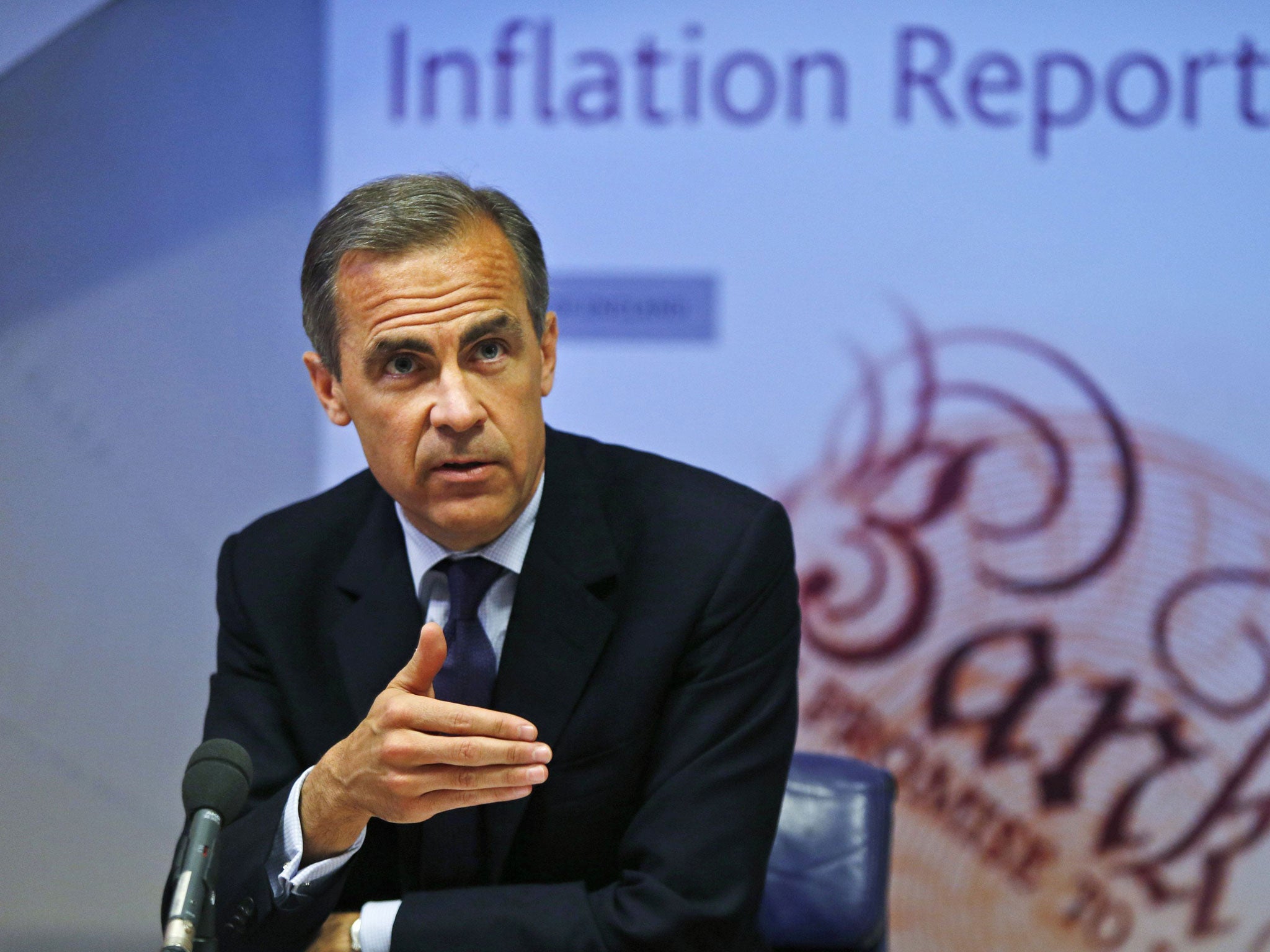Help to Buy mortgage reforms could cool housing market, says Bank of England governor Mark Carney
Governor targets government scheme after prices soar

Your support helps us to tell the story
From reproductive rights to climate change to Big Tech, The Independent is on the ground when the story is developing. Whether it's investigating the financials of Elon Musk's pro-Trump PAC or producing our latest documentary, 'The A Word', which shines a light on the American women fighting for reproductive rights, we know how important it is to parse out the facts from the messaging.
At such a critical moment in US history, we need reporters on the ground. Your donation allows us to keep sending journalists to speak to both sides of the story.
The Independent is trusted by Americans across the entire political spectrum. And unlike many other quality news outlets, we choose not to lock Americans out of our reporting and analysis with paywalls. We believe quality journalism should be available to everyone, paid for by those who can afford it.
Your support makes all the difference.People looking to take out a new mortgage might have to prove they have the financial resources to cope with paying “much higher interest rates”, under plans being considered by the Bank of England.
The Bank’s Governor, Mark Carney, signalled he is looking at adopting a range of new measures to cool the housing market including an “affordability test” and advising the Government to rein in its Help to Buy scheme.
Under Help to Buy the Government underwrites mortgage borrowing above 80 per cent of the property’s value – allowing people to take out mortgages with a deposit of as little as 5 per cent.
But some economists believe that the scheme is fuelling an unsustainable housing bubble which could leave many home-owners unable to meet mortgage payments when interest rates rise to more normal levels.
In an interview on Sky News on Sunday, Mr Carney said the Bank was well aware of the risks of house-price inflation – with new figures today suggesting asking prices have risen by 8.9 per cent in a year.
“We could do more,” he said. “We could take steps around affordability to test whether or not individuals can repay mortgages at much higher interest rates.
“We could limit amounts of certain types of mortgages that banks could undertake, we could provide advice – the Chancellor has asked us if we would provide advice on changing the terms of Help to Buy – all those things are possibilities.”
But Mr Carney said that, ultimately, the “deep, deep structural problems” in the property market – with demand far outstripping supply – could only be addressed through a major expansion of the housing stock.
“There are not sufficient houses built in the UK,” he said. Equating the situation to his home country of Canada he added: “There are half as many people in Canada as in the UK, [yet] twice as many houses are built every year in Canada as in the UK, which just gives you a sense of the orders of magnitude of the supply problems.”
With housing prices now rising at a rate of 10 per cent a year across the country, Mr Carney said the housing market now represented the biggest threat to the recovery.
He expressed particular concern about the return of large mortgages – more than four times a borrower’s salary – which were associated with the financial crash of 2008 and which were, he said, “creeping up” again.
“We don’t want to build up another big debt overhang that is going to hurt individuals and is very much going to slow the economy in the medium term,” he said.
“The biggest risk to financial stability, and therefore to the durability of the expansion – those risks centre in the housing market and that’s why we are focused on that.”
He said that while the Chancellor George Osborne’s Help to Buy scheme was still a “relatively small programme”, it had the potential to grow and “could change attitudes in other parts of the mortgage market”.
Labour’s shadow Chancellor Ed Balls said that Mr Osborne must heed the Governor’s warning, otherwise the Bank could be forced to put up interest rates “prematurely”. “The Chancellor cannot wash his hands of what’s happening in the housing market,” he said. “You can’t deal with the cost-of-living crisis without building many more homes.”
But David Cameron said the Bank had “all the powers they need” to prevent a new asset price-bubble developing.
“We have given to the Bank of England the duty to make sure that bubbles are dealt with in our economy and they have all the powers they need to do that, but he is absolutely right when he says we need to build more houses in Britain,” said the Prime Minister.
“The building of houses is going up. If you talk to any housing developer at the moment or builder, they will tell you that the Help to Buy scheme has been hugely helpful at bringing forward more development.”
Meanwhile Lord Lawson, a former Chancellor during Margaret Thatcher’s time, said Mr Carney had been given the responsibility to advise the Government over the scheme and should make a decision.
He added he would like to see Help to Buy phased back or brought to an end, plus a 0.25 per cent rise in interest rates before the end of 2014.
Lord Lawson said: “I think [Mr Carney] is absolutely right to express his concern but George Osborne has very sensibly charged the Bank of England with the responsibility of telling him when Help to Buy should be either phased back or ended altogether.
“So really the ball is in Mark Carney’s and the Bank of England’s court.”
Join our commenting forum
Join thought-provoking conversations, follow other Independent readers and see their replies
Comments